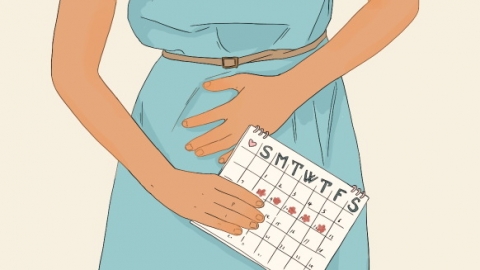Can eating cold foods cause a delayed menstrual period?
Generally speaking, whether consuming cold foods can delay menstruation needs to be determined based on specific circumstances. Occasionally consuming small amounts of cold foods usually does not delay menstruation in individuals with good physical constitutions. However, frequent and excessive consumption of cold foods, or having a sensitive constitution or cold uterus syndrome, may stimulate the body, trigger a stress response, and subsequently lead to delayed menstruation. A detailed analysis is as follows:

If one only occasionally consumes small amounts of cold foods, such as having an ice cream or a chilled beverage on a hot day, and generally has a good physical constitution with a regular menstrual cycle, the body can quickly adapt to the cold stimulation without disrupting endocrine regulation. Therefore, it typically does not cause menstrual delay, and the menstrual cycle can remain normal.
However, frequently and excessively consuming cold foods, such as having multiple cold treats daily or consuming large amounts during menstruation, especially for individuals with a cold uterus constitution who are prone to dysmenorrhea, cold stimulation may cause pelvic blood vessels to constrict, affect blood circulation, and potentially interfere with the function of the hypothalamic-pituitary-ovarian axis, leading to hormonal imbalances. This can disrupt the normal menstrual cycle, causing delayed menstruation, and some individuals may also experience worsened dysmenorrhea.
To reduce the impact of cold foods on menstruation, proper daily care is necessary. Control the frequency and quantity of cold food consumption, and try to avoid them during menstruation; individuals with sensitive constitutions can drink more warm water and apply heat to the abdomen to promote pelvic blood circulation.




